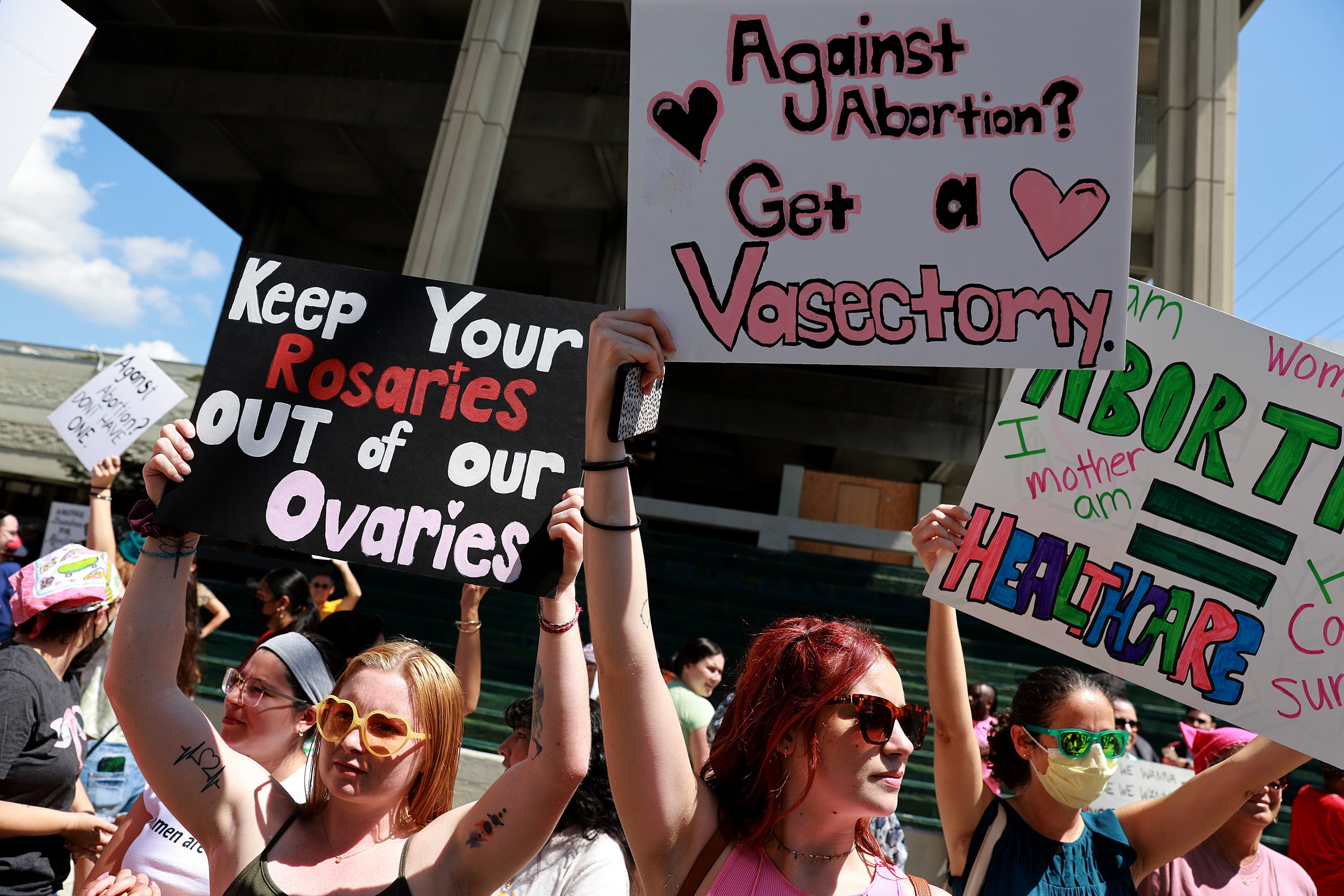Google search sends women seeking abortions to anti-abortion activists, report claims
The misleading search results turn up in ‘Trigger Law’ states where abortions will be criminalised should Roe v. Wade be overturned

Google searches are sending users who search for abortion clinics to the websites of fake clinics run by anti-abortionists, a new report alleges.
The Centre for Countering Digital Hate (CCDH) claims that 11 per cent of Google’s search results for “abortion clinic near me” and “abortion pill” leads to fraudulent clinics when in ‘Trigger Law’ states – parts of the United States that have laws in place that will effectively criminalise abortions should Roe v. Wade be overturned.
The expectation that Roe v. Wade, which effectively repealed laws that banned the procedure outright and sparked decades of religious and moral conflict over women’s bodies, will be overturned stems from a unprecedented leaked draft opinion from conservative Justice Samuel Alito – first reported by Politico – indicates that the court’s conservative majority will vote to overturn the law.
“We hold that Roe and Casey must be overruled,” Justice Alito wrote in a draft of an opinion dated 10 February. “It is time to heed the Constitution and return the issue of abortion to the people’s elected representatives”.
A 1992 Supreme Court ruling, Planned Parenthood v Casey, upheld the “essential holding” in the Roe ruling and prohibited legal constrictions that constitute an “undue burden” on abortion access.
Researchers examined the first page of results for each search using Location Guard - a Google Chrome extension that allows users to change their geographic location. They claimed they found that of the 445 results surfaced, 51 of those led to anti-abortion fake clinics, also known as crisis pregnancy centers or pregnancy resource centers.
These centres are run by organisations that oppose abortion, shame abortion care, or promote alternatives to abortion, the CCDH claims. One such example, ‘The Cline Centre’, states on its website that it provides “safe, professional, confidential care to women with unplanned pregnancies free of charge”, but a disclaimer at the bottom of the website reveals that its “clinics do not perform or provide referrals for abortion procedures.”
As well as links, this includes Maps results and adverts on the top of search results. While Google labels anti-choice ads with a disclaimer - “Does not provide abortions” – a BBC report claims that anti-abortion activists have been buying adverts to discourage women from getting abortions, and many women may not notice the disclaimer while seeking help.
“When people search for information or services relating to their sexual and reproductive health, Google is sending them to sites that users expect to contain robust, scientific, evidence-driven healthcare information – but they actually contain ideologically-driven opinion and misinformation”, Imran Ahmed, chief executive of the Center for Countering Digital Hate (CCDH), said in a statement.
“We have a right to expect that safety by design is a key consideration for any tech platform. If Google refuses to guarantee users’ right to good information, it will be up to lawmakers to step in to ensure that people aren’t harmed by Google’s negligence and greed.”
In a statement, Google said: “Across our products, we work to make high-quality information easily accessible, particularly on critical health topics. Any organization that wants to advertise to people seeking information about abortion services on Google must be certified and show in-ad disclosures that clearly state whether they do or do not offer abortions. We’re always looking at ways to improve our results to help people find what they’re looking for, or understand if what they’re looking for may not be available.”
Join our commenting forum
Join thought-provoking conversations, follow other Independent readers and see their replies
Comments
Bookmark popover
Removed from bookmarks